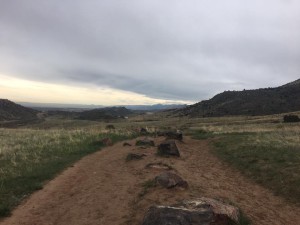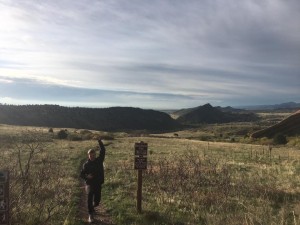WHAT DIRECTION DO YOU WANT TO GO?
Goals can be a sensitive area, especially considering half the time we attempt to accomplish something task oriented, something else inteferes and gets in the way. Outcomes rarely go as expected, and therefor goal setting can frustrate people because of all the unknown factors that could disrupt the well-intent process.
I think it is more advantageous for an indivdual to focus instead on a direction. When you choose a direction in life, it is expected that there will be bumps along the way, so right from the beginning you understand that you will get derailed at times. Choosing a direction to go in is more effective and sustainable when it comes to eliciting real change and creating a new pattern in the brain and body. Goals on the other hand complicate the already busy life. They’re encouraged in gyms, offices, and other competitive arenas, but I think they’re too heavily emphasized on a result. Direction lets you intuitively find your rhythm and pace for making progress and you can still tack a goal at the end of your direction. Achieving any hurdle is great, but I think having a deliberate path to set yourself on can be more effective than setting goals. Below I want to discuss why overcoming yourself in order to achieve the direction you want to go in is half the battle.
STIFF VS PLIANT
Goals require precise decision-making. It’s a lot of rigidity and scheduling when you think about it. Ridgidity turns into stiffness (or unwillingness to change), and this is not an adaptable characteristic. You can become so fixated on getting to your goal that you can fall out of touch with the process- and the process is the best part of accomplishing anything! Also- if you work extra hard towards a goal then fall short, or fall far away from the goal, it can be followed by some dissapointment. Again- goals are good to have, but why not allow yourself more space to make mistakes without the emotional backlash?
Choosing a direction on the other hand allows your goal to be constantly evolving with your own progress. The goal now has the opportunity to evolve as you evolve- you become one with the path you choose and the goal itself. A direction can have a goal be a part of it, but the path isn’t so concrete. Framing it as a place you want to go versus a thing you want to get helps give you ownership of how you’ll get there. Direction works with you to show you the way to get what you’re looking for. I find that if you can figure out the direction, and keep a finger on the pulse to how you feel each day on your new path, you’ll keep from disappointing yourself.
Here is a simple example: your goal is to eat vegetables with 3 meals per day. You want to do this 5 days a week. Great goal, but, the moment you fall victim to being human and making a mistake (like not eating a veggie during a meal), you automatically feel like you failed on your goal. However, if your direction was, “to eat veggies with each meal as often as possible.” Now you have a path to get on, (which will end up taking you to the goal), but it also is reframed in a way that is more understanding to life’s circumstances. You won’t do a perfect job, and you’ll fail to eat veggies as often as you’d like- thats fine. I’m more interested in the change coming from the new habit you’ve employed. If you stick to a goal, everytime you do something that doesn’t fit inside the frame of the goal you count it, you’re aware of it, you absically become a slave to your own mistakes. However, by setting your intention on a direction you’d like to go in, you learn to be compassionate, kind, and understanding of the faults you will makes. And THIS is where you will be able to take control of your vision, your goal, and your life’s direction. I could apply this to training, overcoming psychological issues, doing better and more effective work in your career, but for now lets focus on four main things you want to be aware of when setting out on a new direction.
STAYING ON YOUR PATH
Make the direction you want to go in a visceral experience– something you can feel. A lifestyle change, habit adjustment, a physical challenge, whatever it is you want to feel when you’re actively pursuing the path and direction you decide on. Maybe you’ll laugh, cry, or get frustrated. Emotions are good to feel when attempting to walk on a new path so embrace them! You can use these visceral experiences to tap into what the work feels like whenever you need inspiration or a reminder of why you’re making the change in your life.
There is more potential in you that you are not using. You have the capacity to make changes in your life, but it’ll require accessing parts of your brain and body that you haven’t used before. This alone will be work, thinking in a new way will take work. When trying on a new habit or preparing for a new ‘goal’ demand more of yourself. If you decide on a direction, try to stay on that path 80% of the time leaving 20% for error. Try to avoid the all or nothing mentality and doing anything 100%. I’m not saying to not give 110% effort, but be realistic. Real change takes time, it is a process not an event. Be compassionate with yourself and if you start to feel like your path is getting easier it means you’re doing great and can bump up your efforts! Go for 90/95% of walking on higher ground!
The new direction you seek needs to challenge you mentally, physically, and emotionally. Nobody changes for free, and having said that, nothing truly gets better unless you’re willing to get in touch with some parts of yourself that might be in the backround of your life. Explore your feelings with a psychologist, work towards a goal with a trainer, learn to slow down and relax by finding a knowledgeable bodyworker. If you’re going to embark on a new adventure, you’ve got to equip yourself with a new arsenal of tools. These are some of the most effective ways to get closer to your center..
Your words matter, so if you say something- do it. If your goal is to drink alcohol less, or follow through with going on a morning jog more, than stick to what you say. If you want to go to bed earlier or meditate for 5 minutes each day to slow down your mind- then do it! Understand what it means to manage yourself and your word, and stop trying to ‘fix’ yourself. Learn to self-regulate your habits and intentions. What I mean is, keep an intention behind your choices in life and evaluate them- is what you’re doing correlate to your direction and/or goal? If you’re unhappy with your career or job, are you actively pursuing other opportunites when there’s time? Spend time with yourself, get to know your thoughts, figure out what you need and what is important for you to have in your life.
Change will ultimately disrupt your nervous system, challenge your mind, and take a toll on you physically. But this is necessary for human growth. In a time where people are settling for their comfort more and more, I encourage you to stop following the trend and step outside of your comfort zone. Time will pause for no man or woman, and you’ve got to take advantage of your dreams today while the idea is fresh, hot, and bubbling inside you. Making a career change, adopting a fitness plan, having the difficult talk with your spouse or family member, cutting cords with toxic people; all of these things may sound hard, but you’ll be a better version of yourself because of it. It starts with you choosing a direction, finding the high road and staying on it. You will faulter, you will stop and smell the flowers, but keep on your path. Your path is yours and nobody else’s. Your goal is already inside of you, you only need an intention and a road to travel on it with.
Good luck!


